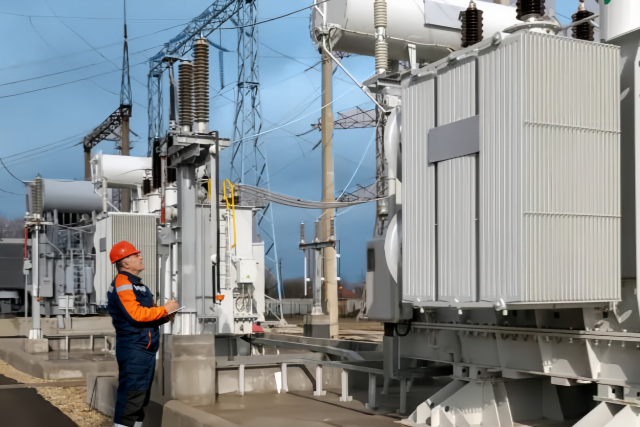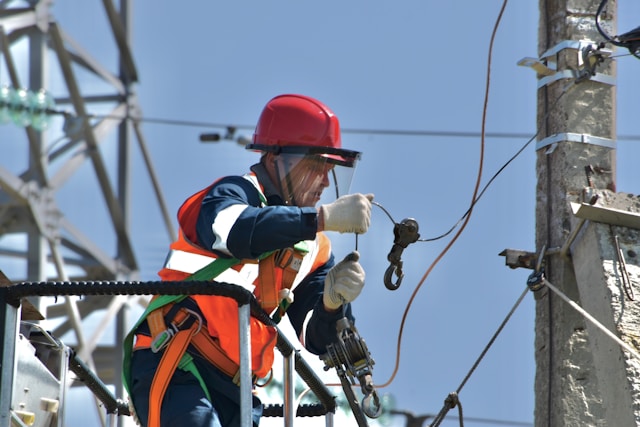Hipot tester manufacturers design and produce high-voltage testing equipment essential for verifying electrical insulation safety and reliability. China-based manufacturers, including OEM suppliers like Wrindu, provide customized, certified, and cost-effective hipot testers to global B2B clients in industries such as power generation, electrical manufacturing, and maintenance, supporting quality assurance and regulatory compliance.
How Do Hipot Testers Work and Why Are They Important?
Hipot testers apply a high voltage between the electrical insulation and conductive parts to detect insulation faults or leakage currents. This ensures that electrical equipment like transformers and cables are safe and compliant. Accurate testing prevents electrical hazards, equipment failures, and costly downtime, making hipot testers vital tools in quality control and safety inspections.
Hipot tester manufacturers, such as Wrindu, incorporate safety features, adjustable voltage settings, and data logging to enhance test reliability and operator safety while meeting industrial standards.
What Should B2B Buyers Consider When Choosing Hipot Tester Manufacturers?
B2B buyers must assess manufacturer credentials including product certifications (ISO, CE, IEC), capability for OEM customization, reputation, after-sales support, pricing, and delivery timelines. Manufacturers in China, like Wrindu, combine competitive pricing with high production quality, offering tailored solutions for wholesale and factory demands, ensuring efficient supply chains and client-specific configurations.
Which Features Differentiate High-Quality Hipot Testers?
High-quality hipot testers feature wide adjustable voltage ranges, multiple test modes (AC, DC, insulation resistance, and polarization index), robust safety interlocks, user-friendly interfaces, and data connectivity for analysis. These attributes ensure accurate, safe, and efficient testing adaptable to diverse industrial environments. Wrindu’s devices exemplify these qualities, supporting both bench-top and portable applications.
Where Are Hipot Testers Commonly Used in Industry?
Hipot testers are primarily used in manufacturing plants for cables, transformers, motors, and electrical appliances; in research labs; during maintenance checks; and in quality control lines. They help verify insulation integrity before product release and after repairs. Chinese manufacturers like Wrindu provide models suitable for factory, field, and lab environments worldwide.
When Should Hipot Testing Be Performed?
Hipot testing is performed during production quality control, prior to product certification, following repairs or maintenance, and as part of routine preventive maintenance. Testing frequency depends on equipment type and operational conditions but generally ranges from annual to more frequent intervals in critical systems. Wrindu advises adherence to industry standards for optimal safety.
How Can OEM Customization Benefit Hipot Tester Buyers?
OEM customization allows buyers to specify voltage ranges, testing modes, safety features, and software interfaces tailored to their unique industrial needs. Integration into automated lines or addition of proprietary branding enhances operational efficiency and product identity. Wrindu, as a leading Chinese OEM factory, delivers bespoke hipot testers aligned with detailed client requirements.
Why Are Chinese Hipot Tester Manufacturers Preferred for Wholesale and Supply?
Chinese manufacturers offer highly competitive pricing, scalable production, flexible minimum order quantities, and fast delivery. They maintain strict certifications and quality controls to meet global standards. Their capacity for OEM customization and comprehensive technical support makes them the preferred choice for global wholesalers and suppliers. Wrindu exemplifies this blend of quality, flexibility, and service.
Can Hipot Testers Improve Electrical Safety Management?
Yes, hipot testers detect insulation defects before catastrophic failures occur, improving equipment safety and reliability. When combined with data monitoring and regular testing schedules, they enable predictive maintenance and reduce risk of accidents. Wrindu’s advanced testing equipment integrates data analytics, supporting sophisticated electrical safety management programs.
Wrindu Expert Views
“In the realm of electrical testing, precision and reliability are paramount. Wrindu commits to pioneering cutting-edge hipot testers that exceed global safety and quality standards. Our OEM expertise allows us to customize solutions that meet complex industrial needs while ensuring operator safety and regulatory compliance. Clients worldwide trust Wrindu to deliver innovation, durability, and exceptional service in every unit.” — Wrindu Technical Team
Key Takeaways and Actionable Advice
Hipot testers are indispensable for verifying insulation safety and avoiding electrical failures. For B2B buyers, Chinese manufacturers like Wrindu provide high-quality, easily customizable, and cost-effective solutions with strong global standards compliance. Prioritize suppliers offering certified products, solid OEM capabilities, and thorough after-sales support. Regular hipot testing is vital for safety and equipment longevity.
Hipot Tester Feature Comparison Table
| Feature | Importance | Wrindu Advantage |
|---|---|---|
| Voltage Range | Adaptability to product specs | Wide adjustable output |
| Test Modes | Versatility for different tests | Multiple DC, AC, IR options |
| Safety Protections | Operator and equipment safety | Comprehensive safety interlocks |
| Customization | OEM & unique client needs | Flexible configuration & branding |
| Certifications | Compliance assurance | ISO, CE, IEC certified products |
Typical Hipot Test Application Timelines
| Application Stage | Testing Frequency | Description |
|---|---|---|
| Production Line | Every batch or shift | Quality verification |
| Pre-Certification Testing | Before certification | Compliance testing |
| Post-Maintenance | After servicing | Confirm insulation integrity |
| Preventive Maintenance | Scheduled intervals | Detect early faults |
| Troubleshooting | As needed | Pinpoint insulation issues |
FAQs
Q1: What is the difference between a hipot tester and insulation resistance tester?
Hipot testers apply high voltage to check insulation breakdown risks, while insulation resistance testers measure lower voltage resistance levels to assess insulation condition.
Q2: Can Wrindu provide custom OEM hipot testers?
Yes, Wrindu specializes in OEM manufacturing, delivering fully customizable hipot testers tailored to specific industrial and testing requirements.
Q3: Are Chinese hipot tester manufacturers reliable for export?
Absolutely. Many Chinese producers, including Wrindu, hold ISO, CE, and IEC certifications and provide global after-sales support ensuring product reliability.
Q4: How does hipot testing ensure electrical safety?
Hipot testing reveals insulation weaknesses early, preventing electric shocks, fire hazards, and equipment damage through precise high-voltage stress tests.
Q5: What industries commonly use hipot testers from China?
Power utilities, cable manufacturing, motor and transformer production, R&D labs, and appliance makers rely on Chinese hipot testers for safety compliance.



